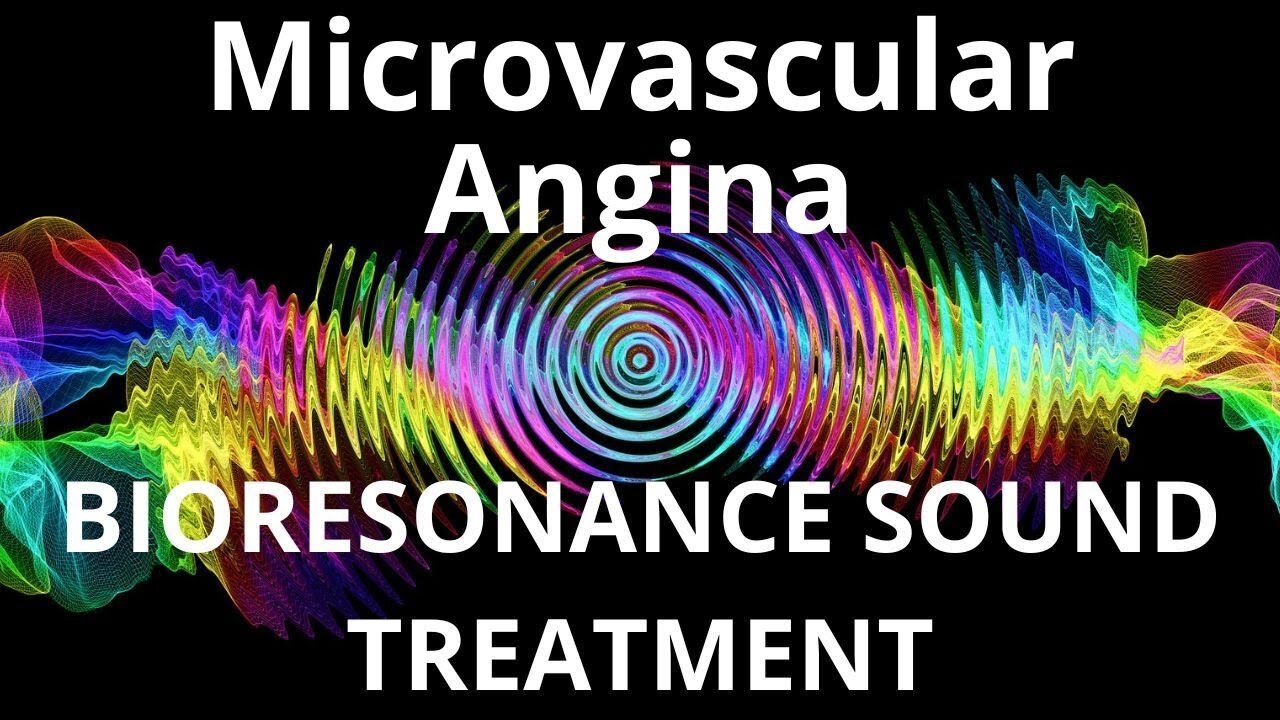Premium Only Content

Microvascular Angina_Sound therapy session_Sounds of nature
#soundtherapy, #resonantfrequency, #adjunctivetreatment, #MicrovascularAngina, #traditionalmedicine
Microvascular Angina, also known as cardiac syndrome X, is a condition characterized by chest pain or discomfort due to reduced blood flow to the heart muscle. While conventional medicine plays a crucial role in managing this condition, emerging research suggests that incorporating resonant frequency sound therapy as an adjunctive treatment can provide additional benefits.
Resonant frequency sound therapy involves the use of specific sound frequencies to promote healing and restore balance within the body. By exposing individuals to these therapeutic frequencies, it is believed that the body's natural healing mechanisms can be activated, leading to improved overall well-being.
Resonant frequency sound therapy acts as a complementary approach to conventional medicine in the treatment of Microvascular Angina. While conventional treatments focus on improving blood flow and reducing symptoms, sound therapy can address underlying imbalances, promote relaxation, and enhance the body's ability to self-heal.
Stress and anxiety can exacerbate the symptoms of Microvascular Angina. Resonant frequency sound therapy has shown promising results in reducing stress levels and inducing a state of deep relaxation. By calming the mind and body, it may help alleviate the psychological and physiological stress associated with the condition.
Improving blood circulation is a key aspect of managing Microvascular Angina. Sound therapy has been found to enhance microcirculation, promoting the delivery of oxygen and nutrients to the heart muscle. By stimulating blood flow, resonant frequency sound therapy may help alleviate chest pain and improve overall cardiovascular function.
Resonant frequency sound therapy has the potential to improve heart health by supporting the relaxation of blood vessels, reducing inflammation, and enhancing the heart's electrical stability. By promoting a healthy cardiovascular system, it can contribute to the management of Microvascular Angina.
In addition to its physiological benefits, resonant frequency sound therapy can improve the overall quality of life for individuals with Microvascular Angina. By reducing symptoms, improving sleep, and promoting emotional well-being, sound therapy can enhance the overall sense of wellness and vitality.
Conclusion:
Resonant frequency sound therapy, when used as an adjunctive treatment for Microvascular Angina in combination with conventional medicine, offers potential benefits for individuals seeking comprehensive management of their condition. By reducing stress, enhancing blood circulation, promoting heart health, and improving overall quality of life, sound therapy provides a holistic approach to support the well-being of those with Microvascular Angina.
TO ACHIEVE A POSITIVE RESULT, DAILY LISTENING TO VIDEOS IS REQUIRED.
In my store you can purchase unique medicines:
https://store11998180.company.site/
You have the opportunity to support the channel:
https://destream.net/live/RadSiarAl/donate
-
 16:48
16:48
BIORESONANCE SOUND THERAPY
15 days agoSamuel Barber Sonata for Cello and Piano
882 -
 LIVE
LIVE
Matt Kohrs
6 hours agoStock Market Open: Bulls Push For New Highs || Live Trading Futures
619 watching -
 LIVE
LIVE
Wendy Bell Radio
5 hours agoSay Their Names
7,537 watching -
 LIVE
LIVE
The Mike Schwartz Show
1 hour agoTHE MIKE SCHWARTZ SHOW with DR. MICHAEL J SCHWARTZ 09-09-2025
1,594 watching -
 LIVE
LIVE
LFA TV
3 hours agoLFA TV ALL DAY STREAM - TUESDAY 9/9/25
5,556 watching -
 1:13:16
1:13:16
JULIE GREEN MINISTRIES
3 hours agoTHINGS THAT WERE BURIED IN YOUR CAPITAL HAVE BEEN FOUND
68K159 -
 LIVE
LIVE
JuicyJohns
1 hour ago $0.29 earned🟢#1 REBIRTH PLAYER 10.2+ KD🟢
71 watching -
 19:37
19:37
BlaireWhite
1 day agoWe Need To Talk About The Trans Shooter, "Robin" Westman.
4.72K13 -
 12:22
12:22
Chad Prather
15 hours agoFinding God’s Timing in a World of Pressure
12.6K4 -
 LIVE
LIVE
The Pete Santilli Show
3 hours agoMORNING STREAM Tuesday September 9, 2025 💣 THE PETE SANTILLI SHOW & SANTILLI REPORT (Monday 9/8)
464 watching